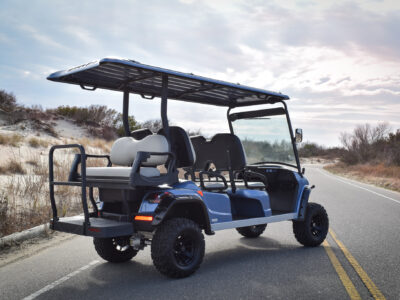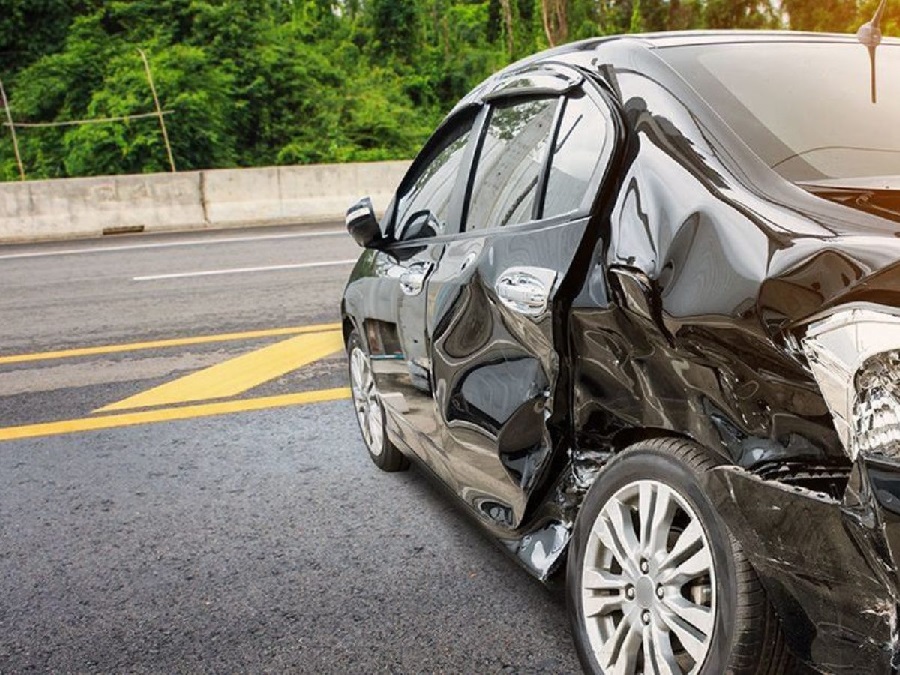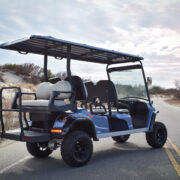Not all types of car tires are the same. If you live in an area that sees a lot of snow, you’re going to need something with enough grip to stop you from sliding around.
Summer tires can handle the heat of the asphalt better than others. If you enjoy taking things away from the highway, you’ll need a set of sturdy off-road tires.
No person should go without a spare in their trunk or truck bed, as well. These are only a few tires that you should keep in mind to help your vehicle handle the demands of the road. Check out this guide to learn more about choosing tires for your first car.
Sedans & Minivans
When choosing a pair of tires, you need to consider the type of vehicle you drive. You can’t put truck tires on a sedan or a regular passenger vehicle.
You’ve got to think about the type of weather that you’re going to be driving in and what kind of performance that you want out of your car. Apart from the tires, you can also check this site for the best tire shine and gels.
Summer Tires
Hot weather can cause your tires to expand and contract. As you can imagine, this can put a serious strain on them. You’ll need to check your air pressure every day, or you can invest in a good pair of summer tires.
They’ve got grooves that will prevent you from hydroplaning when those summer rainstorms set in. This being said, they can’t handle monsoon levels of rain, and they’re called summer tires for a reason. They won’t keep you on a road that’s covered in snow and ice.
They’re made with durable materials, so they don’t change their shape as you drive across the hot pavement. This means they don’t wear out as fast as your standard tire.
All-Season
If you’re looking for a comfortable tire that’s reliable no matter the weather, all-season ones are for you. They can provide enough traction to get you through light snow conditions.
If your area sees several feet of snow each year, you may want to trade up for a specialty winter tire. They can also take the heat, but not to the extent that a summer tire can.
They have a symmetrical tread pattern, so one part of the tire doesn’t see more action than the others. This keeps them from wearing out as quickly.
Touring
Touring tires have a lot in common with the all-season ones. They provide a comfortable ride with reliable traction that will keep you on the road. The difference is that touring tires are built more for performance.
They have a high-speed rating, so they won’t wear out when you’re trying to keep up with fast traffic on the highway, and you’ll be able to stay in control of your vehicle no matter how fast you’re going.
Performance
Many people get touring tires confused with actual performance tires. They serve some of the same purposes, but they’re a little different.
The grooves are designed to keep you on the road no matter what weather conditions. Performance tires have a higher speed rating than touring tires do, which means they’re even better for driver control when you’re going fast on the open road.
Truck Tires
Again, you can’t put the tires that we discussed above on your truck. They won’t be able to handle the stress that the vehicle will put them under.
Truck tires typically have a longer-lasting tread and are durable enough to take on the added weight that trucks and SUVs bring to the table.
Highway
As you go faster down the road, things might get a bit dicey unless your truck is outfitted with highway tires. They’ll provide you with a smooth ride no matter how fast you’re going down the road.
They provide general traction that can help them withstand the demands of any season, and they’re durable enough to support your truck’s weight.
All-Terrain
If you don’t like being limited to the road, all-terrain tires will be your best friend. They have a large tread that allows them to handle gravel, a light amount of mud, and dirt.
On top of giving you stability off-road, they’ll provide you with a great highway experience as well. They can handle a lot of the extreme weather that mother nature throws your way.
Mud-Terrain
The tread blocks on mud-terrain tires are a little larger than all-terrain ones. It allows them to keep your vehicle stable in softer terrain like sand and deep mud.
Unfortunately, they’re not as great for highway driving. They tend to be noisier and bumpier. They’re better for those who want a killer off-road experience.
Performance Truck Tires
Performance truck tires work about the same as performance passenger car tires work. They can withstand higher speeds when you’re driving down the highway in your truck or SUV.
They have superior breaking that will keep you safe on the road, and they can handle pretty much all weather conditions. They also have a higher speed rating than your general highway truck tires.
Rib Tires
If you mainly use your truck to drive back and forth to work on the highway, rib tiers are a good go-to. They’ll give you plenty of traction that will get you where you need to go, no matter the weather.
They’re made to support the vehicle and give you a nice boost of fuel efficiency. If you put a lot of mileage on your truck, you know how important saving money on gas is.
Specialty Tires
Depending on the situation, you may need to outfit your vehicle with specialty tires. Winter tires can take care of stuff that the other tires on this list can’t.
You should never go without a spare tire in your trunk or truck bed as well. You never know when you’re going to pop a tire while you’re driving down the road.
Winter
If your area sees a lot of snow and sleet, you’ll need to invest in a good pair of winter tires. They often come with studs that will stop you from skidding on icy roads.
Non-studded winter tires are a little more popular than studded ones because they can be used for more than snow and ice. One thing to keep in mind is that these tires are illegal in some states. You’ll need to check up on your local laws before you buy them.
Spare Tires
You shouldn’t go anywhere without having a spare tire on you. They are designed to help you out in the event that you get a flat tire. Most people also call these little life savers donuts.
These tires are a little limited. You’ll have to stick to certain speeds while you’re driving on a donut, and you’ll only be able to use it for a small number of miles. They’ll work until you can get to your nearest tire store, but they’re not meant for long-term use.
Tips for Buying Tires
Now that you know a little about your options, it’s time to find out how to buy the best car tires for your vehicle. Picking the right type is only step one.
Shop Around
You’re not going to buy the first car that you look at. You’re going to shop around a little bit. You should have this same philosophy for many things in life.
That includes your tires. If you want to find a good deal, get price estimates from different shops. You’re not locked into anything because you got a quote.
You shouldn’t sleep on online providers either. Click here to begin your internet search.
Cheaper Isn’t Always Better
You shouldn’t sacrifice quality for the price. We understand that tires can be expensive, but if you cut corners, it could put yourself and anyone who rides with you in danger. It’s better not to risk that.
Buying Used Tires
Going off our point from above, buying cheaper used tires isn’t always a bad thing. You can find some great deals, but you’ll need to inspect the tires first.
You can do the coin trick for this purpose. Stick a penny between the tread on the tire. If you can see the top of Lincon’s head, you should go with another option.
Different Types of Car Tires to Familiarize Yourself With
The biggest part of vehicle ownership is knowing what tires to buy for your car. If you try to outfit your passenger car with a pair of truck tires, you won’t be met with the best results.
Understand the different types of car tires and test them out before you commit to a purchase. If you’re looking for ways to maintain your new tires, visit the Automotive section of our blog.












Comments